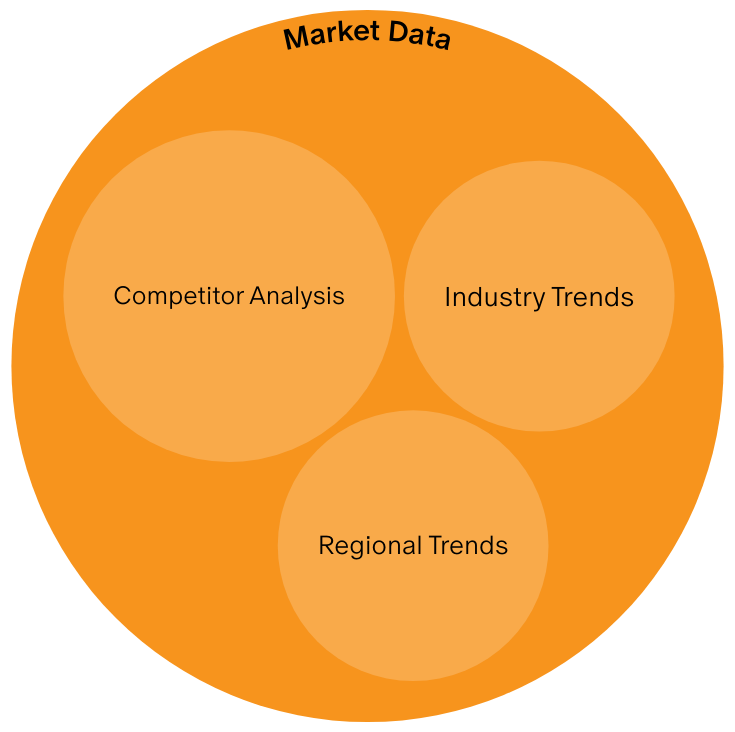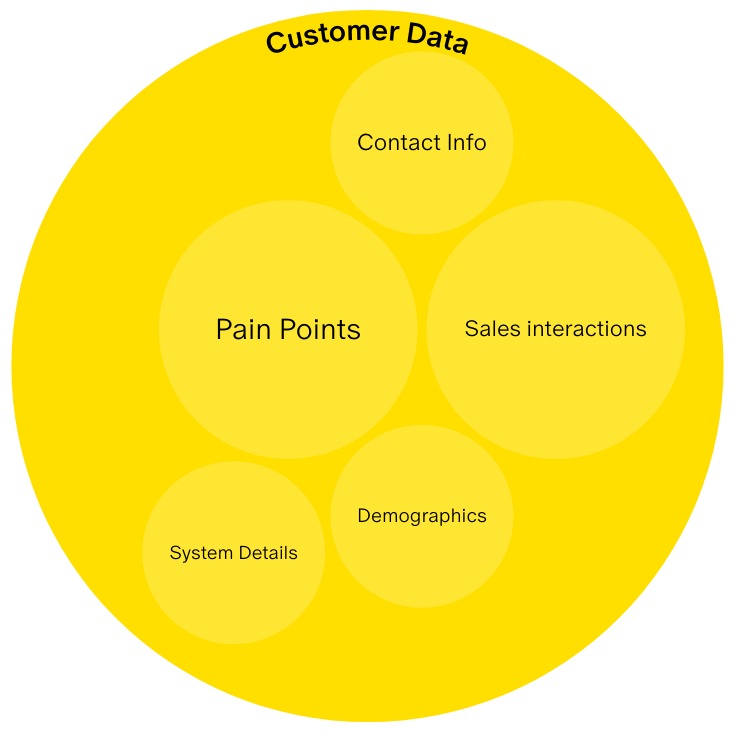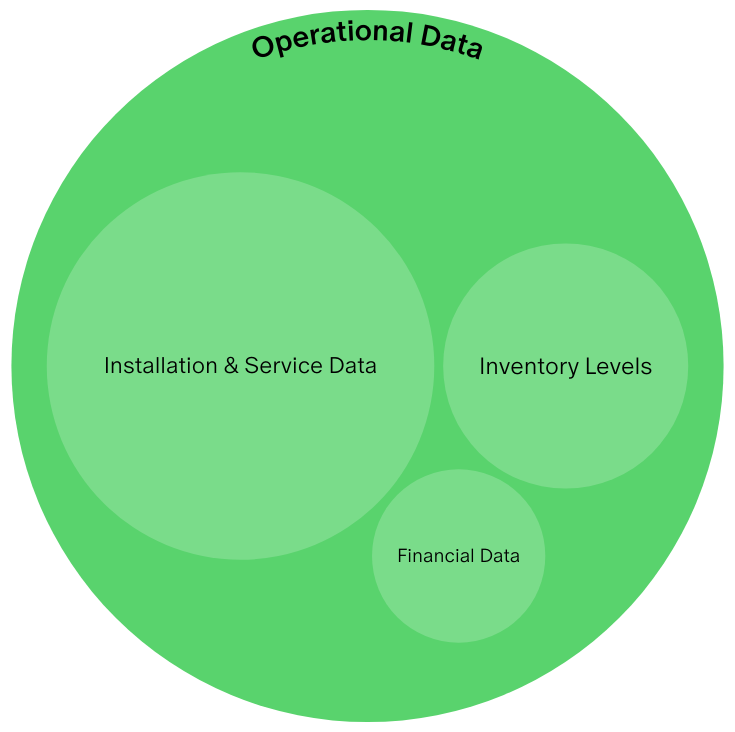Much of sales planning, forecasting, and promotional structure is often based on “instinct,” “intuition,” or “prior experience.” But even experience, if not backed by data, can be dangerous to rely on. What’s often tied to instinct, intuition, and even personal experience? Emotion. We all know that emotion can cause an unwanted bias and unnecessary stress when planning HVAC sales strategies. So, let’s look at ways you can take the hot air – and the stress – out of HVAC sales planning and replace it with data. Data brings accuracy and certainty, so you can feel confident about your business decisions.
Plan for Disruptions by Investing in Sales Enablement
The HVAC industry, like any other, is constantly evolving, and regulatory changes can have a significant impact. For instance, the EPA’s SNAP finalized rule prohibits the installation of high-GWP refrigerants after January 1, 2026. As a sales leader, you must anticipate these changes and adjust your strategies accordingly.
Having an agile training and sales enablement structure in place will help you plan disruption response into your HVAC sales strategies. When education is built into your sales process, your teams will be ready for market curveballs with knowledge and real data.
Online Education
Utilize online training platforms such as Udemy, Coursera, or LinkedIn Learning to provide access to a wide range of courses on everything from sales techniques and leadership development to industry trends and energy-efficiency.
Webinars and Virtual Workshops
Host webinars or virtual workshops featuring industry experts, internal subject matter experts, or external trainers. These sessions can cover topics like regulatory changes, new product launches, or HVAC sales best practices.
Sales Playbook Software
Sales playbooks help you build in standard responses to common objections and issues customers have. They should be easy for salespeople to access in multiple formats and easy for you to create, update, and distribute. An online Wiki—which can be built using web software or created by a freelance web developer—is one of the best formats for this, as it’s familiar to most people and provides an easily navigable and searchable interface.
Microlearning
Education doesn’t always have to be two-day seminars or multi-hour courses that take a toll on day-to-day productivity. Bite-sized, contextualized learning can be more impactful than lengthy training. A study published in the peer-reviewed journal of medical science, Cureus, found,
“Micro-lessons can aid in negating the Ebbinghaus forgetting curve and can use reintroduction to keep retention at significantly higher levels.”
—Mrigank S Shail
Look for ways to incorporate bite-sized, easily digestible “learning moments” into the sales process. For instance, include reminders about important SNAP deadlines and SEER standards on scope of work documents so sales reps can recommend replacing low-efficiency and high-GWP parts instead of repairing them.
Gamification and Incentives
Incorporate gamification elements and incentives into your training programs. Create friendly competitions, quizzes, or challenges that reward sales reps for completing training modules or achieving specific learning milestones. Recognize and reward sales reps who consistently engage in continuous learning and apply their newfound knowledge effectively. This can include a reward points program, debit or gift card rewards, or public recognition.
Customer Data is Money – Go Get It
Understanding your customers is crucial for success in sales. While in the past, HVAC sales may have been about charisma and conversation, today it’s all about data. Customer data is your treasure trove for making informed decisions.
Encourage your sales reps to gather customer information, including warranty registrations and preferences. Use incentives to motivate them to collect valuable data. In a world where customers are doing their own research, knowing your customers inside out can set you apart. Here are some of the ways you can adjust your HVAC sales strategies to prioritize getting more customer information:
Streamlined Product Warranty Registration
Make the warranty registration process as simple and convenient as possible. Offer online and mobile options for submitting warranty registrations. For instance, Extu’s Performance Tracking feature allows sales reps, field techs, and installers to snap a picture of a warranty registration and upload it to your online sales incentive program—allowing them to earn instant rewards for their submission.
Open-Enrollment Loyalty Program Forms
An open-enrollment loyalty program is one where customers don’t need an invitation to join. You just give them the public link to the program, and they sign up. The online loyalty program can be seamlessly integrated into your corporate website for maximum convenience. Anyone can join the ranks and reap the benefits of your sales promotions. With a customizable registration form, you get to cherry-pick the data that matters to you, in a context where customers are excited to interact because they’re signing up for rewards.
Incentives for Data Collection
Offer rewards points, debit card funds, gift cards, or other incentives for sales reps and installers who collect and submit customer data. This could include emails to sign them up for updates, information about their buying and communication preferences, and details about their system for future marketing and sales opportunities.
Train Teams on Data Value
Educate your team on the importance of data for improving customer service, marketing strategies, and overall business performance. Examples and contextualization are key here. When you show HVAC sales teams the potential revenue generated from additional customer details, they’ll see the bigger picture and be more eager to know more about their customers.
Customer Satisfaction Surveys
Include data-rich questions in your post-service satisfaction surveys to gather valuable feedback and insights. According to a Hubspot, most customers are willing to spend 10-14 minutes filling out a survey. Make the most of those minutes by asking the questions that will most help you improve sales and marketing efforts.
Embrace AI, Machine Learning, and Predictive Analytics in HVAC Sales Strategies
Artificial intelligence (AI) and machine learning are poised to change nearly every industry today, and HVAC is no exception. Extu consulted AI expert Bob Suh, founder and CEO of machine learning firm OnCorps to learn more about how AI can help HVAC sales leaders with their strategies. According to Suh, the biggest misconceptions about AI are “that it can generate more sales like a black box, and that it can handle communications more effectively.”
Artificial intelligence and predictive analytics can revolutionize your sales strategies, but they are only as good as the data they rely on. Ensure that the insights you feed into your systems are accurate, relevant, and up to date. Remember:

- Quality is key. Ensure the accuracy, completeness, and consistency of your data.
- Keep it relevant. Collect data that aligns with your specific goals and challenges.
- Integrate data sources. Combine data from multiple sources for richer insights.
- Update regularly. Maintain your data to reflect changing market conditions and customer needs.
The Data That Makes AI (and Your Sales Strategies) Smart
Whether you’ve already started incorporating AI and predictive analytics into your HVAC sales strategies or it’s on the horizon, these are the type of details you should be collecting for future sales and marketing success:
Market Data

- Industry trends: New technologies, regulations, economic factors affecting HVAC spending.
- Competitor analysis: Pricing strategies, product offerings, marketing campaigns.
- Regional trends: Local climate data, energy costs, construction activities.
Customer Data
- Company demographics: Size, industry, location, revenue, building details (square footage, age, etc.).
- Contact information: Key decision-makers, buying and communication preferences.
- HVAC system details: Existing equipment brands, age, maintenance history, energy efficiency.
- Pain points and needs: Climate control challenges, budget constraints, sustainability goals.
- Sales interactions: Proposals, quotes, communications, closed deals.

Operational Data

- Inventory levels: Availability of equipment, lead times, supplier pricing.
- Installation and service data: Time spent on projects, common repair issues, customer satisfaction ratings.
- Financial data: Sales metrics, profit margins, cost drivers.
Additional Data
- Weather data: Historical and real-time temperature, humidity, and precipitation information.
- Building energy usage data: If available, sub-metering data can provide valuable insights into energy consumption patterns.
- Social media and online sentiment: Public perception of your brand and the HVAC industry.
By gathering and analyzing this data effectively, you can tailor your sales strategies to meet the specific needs and preferences of your customers.
Man vs. Machine
One of the best ways to maximize AI’s usefulness to your sales strategies is to use its fast-thinking abilities against your own assumptions and experience. Bob Suh says his firm “compares human predictions with the AI to understand how to improve resource allocation and have seen great success using AI to forecast sales levels and timing.”
You’re not using AI to replace creative problem-solving and innovative sales strategies but using it to speed up your ability to connect the dots and clearing up the fuzziness of sales forecasting. This means your HVAC sales strategies will be more effective because they’re based on more accurate data. More effective, predictable sales strategy results mean less stress for you and your sales team.

To Wrap Up
It’s crucial to recognize the power of data in driving success in the HVAC industry. Relying solely on intuition can lead to unreliable forecasts and added stress, fueled by emotional biases. To conquer this challenge, adopting data-driven approaches is paramount.
- Invest in sales enablement through agile training, microlearning, gamification, online education, webinars, virtual workshops, and intuitive sales playbook software.
- Prioritize valuable insights, streamline warranty registrations, implement open-enrollment loyalty programs, and incentivize data collection
- Train your teams to understand the value of data, embrace AI and predictive analytics, and gather the right insights for smarter decision-making.
By doing all this, you not only amplify the effectiveness of your HVAC sales strategies but reduce stress for you and your team. Bid farewell to the age of hot air, and usher in an era of data-driven confidence and success.



